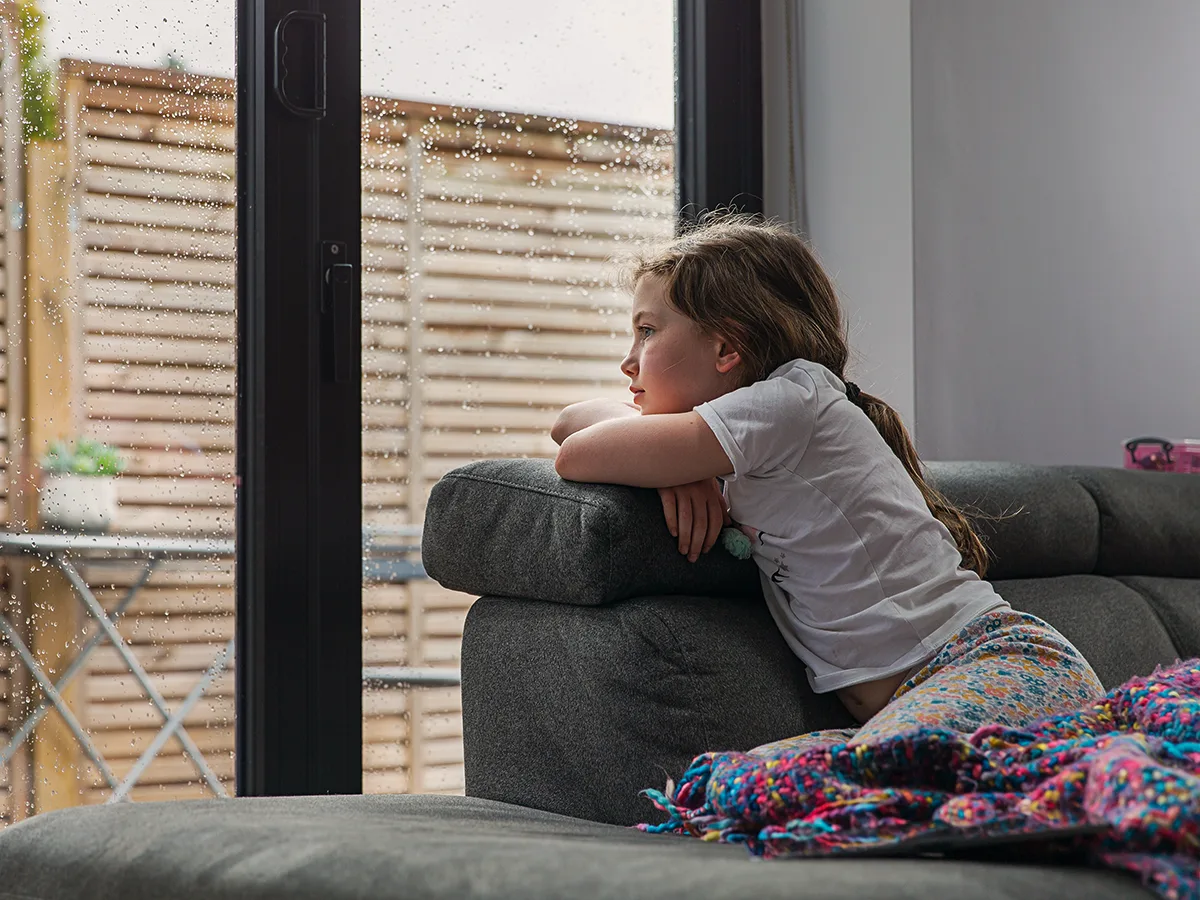My teen stopped talking to me. Should I be worried?
So, your once chatty teen has suddenly clammed up. No parents enjoy getting the silent treatment from their kid, especially when they feel like they’ve enjoyed a close relationship, and nothing has changed on their end.
The first thing to do is to take a breath. Know that pulling away from parents is a normal and necessary developmental stage of adolescence. But as much as your child hates to admit it (and probably won’t), your child still needs you to stay connected and involved in their life. That’s especially true for teens with learning and thinking differences, who often face extra stress in high school.
Teens need their own space, but they also need their parents. So while your child is doing the work of separating, you need to do the work of carefully bridging the gap. Start by meeting your teen where they are.
How silent is the silent treatment?
Whether or not you have cause for concern really depends on the extent to which your child has stopped talking. Here are a few possible scenarios.
You and your child used to be “besties.” Your child told you everything. But now, suddenly, your high-schooler has shut you out and shares their private thoughts only with friends.
In this case, you have very little to worry about. Painful as it may be, you have to try not to take their choice personally. Your teen’s doing what they’re supposed to be doing.
Here are tips on what to do (and not do) in this situation:
Don’t lecture your child or tell them how hurt you feel.
Try to have positive interactions with your teen.
Engage your child in activities you’ve enjoyed doing together.
Sit down to meals together.
Don’t pump your teen for information. Instead, open up and share something funny or interesting about your own life. If you open up, your child is more likely to do the same.
Talk to your teen like an adult and make it clear that you value their opinions and expect respect in return.
Your once lovely and affectionate child now responds to you with one-word answers and annoyed eye-rolling. Your high-schooler spends as little time with you as possible and seems to reserve enthusiasm only for friends.
Though it may be maddening, and you might be tempted to punish this kind of behavior, know that it still falls well within the range of normal teenage development. Focusing on peer relationships helps kids learn to be less dependent on parents — a necessary step to becoming happy, independent adults. That said, it’s still your job to insist on respect and to keep your child safe.
What to do:
Set appropriate limits, but focus on strengthening your relationship, too. You’ll get no respect if your teen doesn’t feel connected to you.
Resist the urge to lecture. If you can do that, your child won’t need to push you away in order to become themself.
Remember that teenagers can be emotional. That’s especially true for kids with ADHD. Look for the distress under the disrespect. By saying something like, “I know you’re upset, but you aren’t normally unkind,” you can create the beginning of a conversation.
Your child speaks to no one and spends all their time in their room with the door closed. Your teen has withdrawn from friends, has lost interest in activities that once gave them pleasure, and has grown increasingly isolated.
This kind of behavior is cause for serious concern and falls outside the realm of normal teenage development. You need to find out whether your child has undergone some kind of trauma, like bullying or rape, or is abusing drugs or alcohol. This behavior could also indicate the beginning of a serious mental health issue such as depression, schizophrenia, or bipolar disorder, all of which become more common in the late teens and early 20s.
It’s dangerous if your teen is pulling away from everyone they know. Retreating into an online world, for instance, isn’t an acceptable substitute for talking to people in real life. Internet relationships can become very intense very fast, and it’s hard to know if the people your child is friends with online are a good influence, or even if they are who they say they are.
What to do:
If your child seems hostile and angry, give your teen the chance to tell you that they feel you’ve done something wrong.
Privacy only goes so far. No teenager’s room should be off-limits to a parent. You have the right to know what your child is doing in their room, especially if they are spending hours at a time alone in there.
Insist on more information. It’s not at all uncommon for teens to answer questions like “Where are you going?” by saying, “Out.” And “When will you be back?” with “Later.” Stand firm and tell your child you need specifics.
In cases where your kid refuses to communicate, it may be advisable to monitor their social media.
Seek professional help from a qualified clinician. Begin by calling your child’s pediatrician and describing your teen’s behavior in detail.
Do you suspect your teen might be feeling suicidal?
If you even suspect this might be the case, it’s crucial that you address the issue immediately. But calmly. “It’s important that you talk about your concerns in a calm, non-accusatory manner,” says Nadine Kaslow, PhD, a psychologist and expert on suicide in young people. “Sometimes when parents are very worried, they end up saying, ‘Don’t think this way,’ or, ‘You shouldn’t feel that way.’ And they come across not as loving and caring, as intended, but as critical. Children respond negatively to that.”
Kaslow also recommends:
Let your child know you love them over and over again when they’re having a hard time.
Validate their feelings by saying things that show empathy such as: “It sounds like that was really difficult.” “I know how painful that can be.”
Work with your child to get professional help and explain that seeking help isn’t a sign of weakness.
When it comes to the silent treatment, remember, it’s not about you. You have to pick your battles and give your teen room to grow. But you also have to put your child’s health and well-being above all else. That means staying connected even when kids don’t make it easy or fun.
Get to know signs of depression and anxiety in kids. If you have concerns about suicide, learn more about what to do by visiting our founding partner the Child Mind Institute.






